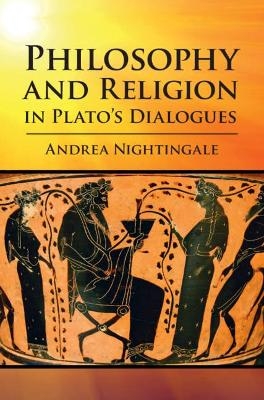
Philosophy and Religion in Plato's Dialogues
Seiten
2021
Cambridge University Press (Verlag)
978-1-108-83730-9 (ISBN)
Cambridge University Press (Verlag)
978-1-108-83730-9 (ISBN)
Challenges the dominant idea that Plato is a secular thinker and shows how he uses specific aspects of Greek religion in his philosophy, especially the epiphanies of gods to humans, the Eleusinian Mysteries, and the Orphic mysteries.
In ancient Greece, philosophers developed new and dazzling ideas about divinity, drawing on the deep well of poetry, myth, and religious practices even as they set out to construct new theological ideas. Andrea Nightingale argues that Plato shared in this culture and appropriates specific Greek religious discourses and practices to present his metaphysical philosophy. In particular, he uses the Greek conception of divine epiphany - a god appearing to humans - to claim that the Forms manifest their divinity epiphanically to the philosopher, with the result that the human soul becomes divine by contemplating these Forms and the cosmos. Nightingale also offers a detailed discussion of the Eleusinian Mysteries and the Orphic Mysteries and shows how these mystery religions influenced Plato's thinking. This book offers a robust challenge to the idea that Plato is a secular thinker.
In ancient Greece, philosophers developed new and dazzling ideas about divinity, drawing on the deep well of poetry, myth, and religious practices even as they set out to construct new theological ideas. Andrea Nightingale argues that Plato shared in this culture and appropriates specific Greek religious discourses and practices to present his metaphysical philosophy. In particular, he uses the Greek conception of divine epiphany - a god appearing to humans - to claim that the Forms manifest their divinity epiphanically to the philosopher, with the result that the human soul becomes divine by contemplating these Forms and the cosmos. Nightingale also offers a detailed discussion of the Eleusinian Mysteries and the Orphic Mysteries and shows how these mystery religions influenced Plato's thinking. This book offers a robust challenge to the idea that Plato is a secular thinker.
Andrea Nightingale is a Professor of Classics at Stanford University. She has authored Genres in Dialogue: Plato and the Construct of Philosophy (Cambridge, 1995), Spectacles of Truth in Classical Greek Philosophy: Theoria in its Cultural Context (Cambridge, 2004), and Once out of Nature: Augustine on Time and the Body (2011).
Introduction; 1. The Forms, the Good, and the Divine; 2. Eternal Longings; 3. Dialogue of Self and Soul; 4. Wings of Desire; 5. The Gods Made Visible; Conclusion; Bibliography; Index.
| Erscheinungsdatum | 06.05.2021 |
|---|---|
| Zusatzinfo | Worked examples or Exercises |
| Verlagsort | Cambridge |
| Sprache | englisch |
| Maße | 160 x 235 mm |
| Gewicht | 580 g |
| Themenwelt | Geschichte ► Allgemeine Geschichte ► Altertum / Antike |
| Geisteswissenschaften ► Philosophie ► Philosophie Altertum / Antike | |
| ISBN-10 | 1-108-83730-1 / 1108837301 |
| ISBN-13 | 978-1-108-83730-9 / 9781108837309 |
| Zustand | Neuware |
| Haben Sie eine Frage zum Produkt? |
Mehr entdecken
aus dem Bereich
aus dem Bereich
Die unglaubliche Geschichte eines antiken Söldnerheeres
Buch | Hardcover (2022)
C.H.Beck (Verlag)
28,00 €
die Inszenierung der Politik in der römischen Republik
Buch | Hardcover (2023)
C.H.Beck (Verlag)
48,00 €


